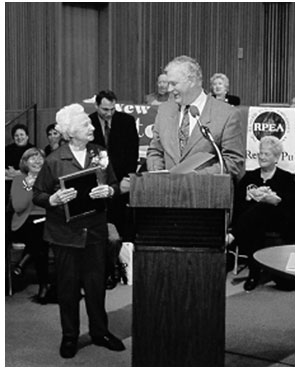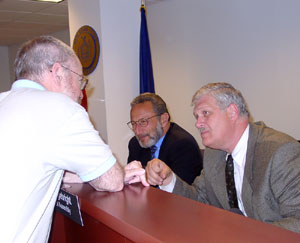
Message from the Chair
Dear Friend:
In this especially difficult budget year, much of the committee’s energy was directed toward preventing further budgetary erosion of programs and services for older New Yorkers. I am particularly pleased that we were able to accomplish successful refunding of such vital direct assistance initiatives as the Respite Care Program for the Elderly and the Social Model adult day care Program.
Similarly, we also responded proactively to the serious crisis in the State’s licensing, inspection, and enforcement of the adult home industry. In May and June we held two joint public hearings to investigate the all too often inadequate quality of care in adult homes. Immediately thereafter reform legislation was introduced to address the short and long term needs for increased oversight and accountability.
In a few years the leading edge of the baby boom generation will be eligible for retirement and the population of seniors in our state will double. Within this context I believe that we need to do more than just maintain prior year funding levels. Only proper planning and wise use of our state’s resources will enable us to deal with this dramatic demographic shift.
The Committee on Aging relies on your input for its agenda – which includes legislation, regulatory oversight, and public outreach. To do this effectively, my staff and I welcome your questions, concerns, and ideas. Please call my office at (518) 455-4804 with your ideas and suggestions. We can, as informed partners, build upon our past successes.
Sincerely,

|
![]()
Steve Englebright
Chair, Assembly Committee on the Aging
|
Assemblyman Englebright presents Molly Linden of Albany with the New York State Legislature’s Senior of the Year Award at the Statewide Grassroots Senior Citizens Day which was held in Albany on May 15th. |


